Understanding a Soft Diet After Oral Surgery
After undergoing oral surgery, whether it’s a tooth extraction, gum surgery, or dental implants, one of the most important aspects of your recovery process is your diet. Eating the right foods is crucial to ensuring proper healing and preventing complications. A soft diet is often recommended to help minimize discomfort, avoid irritating the surgical site, and provide adequate nutrition during the recovery phase. In this article, we’ll discuss what a soft diet entails, what foods are safe to eat, and why it’s essential to follow these guidelines post-surgery.
1. Why Is a Soft Diet Necessary After Oral Surgery?
After oral surgery, your mouth, gums, and teeth need time to heal. Eating hard, crunchy, or spicy foods can disrupt the healing process, irritate the surgical site, or cause unnecessary pain. A soft diet helps reduce the risk of complications such as infections, inflammation, or delayed healing. Additionally, soft foods are easier to chew and swallow, which minimizes the strain on your mouth while you recover. A soft diet allows your body to focus on healing rather than dealing with digestive discomfort caused by difficult-to-chew foods.
2. What Foods Are Considered Safe on a Soft Diet?
When following a soft diet after oral surgery, it’s essential to choose foods that are gentle on your mouth, easy to chew, and won’t cause irritation. Below is a list of foods that are typically safe to eat during recovery:
Soft Proteins
Protein is an essential part of your diet, especially during recovery, as it helps with tissue repair. Fortunately, there are several protein-rich foods that are soft and easy to eat. These include:
- Scrambled eggs
- Yogurt (preferably plain or low-sugar)
- Cottage cheese
- Smooth tofu
- Protein shakes or smoothies
Cooked Vegetables
Vegetables are packed with nutrients, but raw vegetables can be too tough to eat after surgery. Opt for well-cooked vegetables that are soft and easy to digest. Some great choices include:
- Mashed potatoes (without the skin)
- Cooked carrots or peas
- Steamed spinach or zucchini
- Pureed vegetables like squash or pumpkin
Soft Fruits
Fruits are important for their vitamins and antioxidants, but hard or fibrous fruits can be challenging after surgery. The following fruits are softer and easier to consume:
- Applesauce (unsweetened)
- Bananas
- Peaches or pears (canned or peeled)
- Fruit smoothies with soft fruits (no seeds)
Soft Grains and Carbs
Carbohydrates provide energy, but whole grains and hard grains can be too difficult to chew during recovery. Instead, opt for soft and easily digestible grains, such as:
- White rice or pasta (cooked very soft)
- Oatmeal or cream of wheat
- Soft bread or rolls (without crusts)
- Soft pancakes or waffles (without nuts or seeds)
3. Foods to Avoid After Oral Surgery
While there are many foods that are suitable for a soft diet, there are also several types of foods that should be avoided during the recovery phase. These foods can cause discomfort, disrupt the healing process, or even lead to complications:
Hard and Crunchy Foods
Hard foods, such as chips, pretzels, raw vegetables, and nuts, can damage the surgical site and cause irritation to your gums or stitches. These foods can also be difficult to chew, leading to unnecessary strain on your healing mouth. Avoiding them will help speed up your recovery.
Sticky or Chewy Foods
Foods that are sticky or chewy, such as caramel, chewing gum, or toffee, can pull on your gums or teeth and may become lodged in the surgical area. These foods can increase the risk of infection and should be avoided while healing.
Spicy or Acidic Foods
Spicy and acidic foods, including hot peppers, tomatoes, citrus fruits, and vinegar-based dressings, can irritate your gums and the surgical site. These foods may cause pain, swelling, or even lead to an infection if consumed too soon after surgery.
Hot Beverages and Alcohol
Hot liquids, such as coffee, tea, and soup, should be avoided immediately after surgery. The heat can aggravate the surgical area and cause pain or swelling. Additionally, alcohol should be avoided as it can interfere with your medication and may slow down the healing process.
4. How to Make Eating Easier After Oral Surgery
While following a soft diet is crucial after oral surgery, there are a few tips that can make eating more comfortable and enjoyable:
Smaller, More Frequent Meals
After oral surgery, you may not feel like eating large meals, especially if you are still in pain. It’s helpful to eat smaller meals more frequently throughout the day to ensure you’re getting enough nutrition. Soft foods can also be prepared in different textures to make eating easier and more comfortable.
Blend or Puree Your Foods
If chewing is still painful, consider blending or pureeing your foods into smooth textures. You can use a blender or food processor to create pureed soups, smoothies, and other easy-to-eat meals. This will allow you to enjoy a variety of foods without worrying about chewing.
Stay Hydrated
Drinking enough fluids is important during the recovery process. Water is the best choice, but you can also sip on clear broths, herbal teas, or fruit juices (without pulp). Avoid using straws, as sucking can disrupt the healing process.
5. When to Return to Your Normal Diet
The duration of the soft diet phase varies depending on the type of oral surgery and the individual's healing process. Typically, after a few days to a week, your dentist or surgeon may allow you to slowly transition to more solid foods as your mouth heals. However, it’s crucial to listen to your body and follow your healthcare provider’s recommendations to avoid complications.
Maintaining a soft diet after oral surgery is essential to support the healing process and ensure a smoother recovery. By following the right dietary guidelines and avoiding problematic foods, you can promote quicker healing and reduce discomfort as you get back to your normal routine.

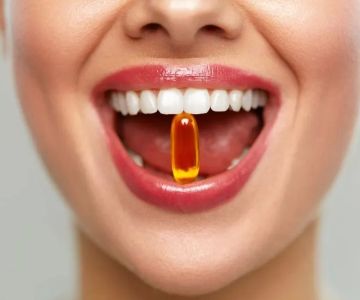

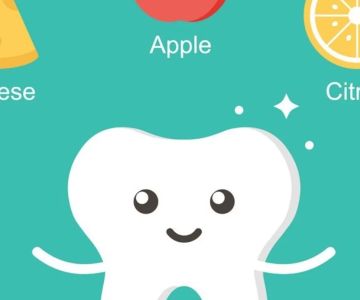

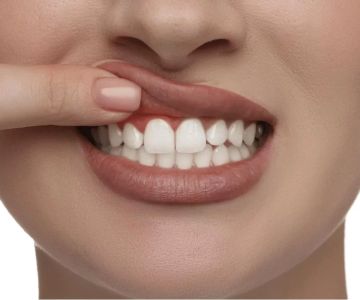

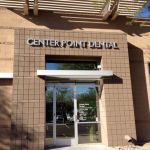 Center Point Dental4.0 (89 review)
Center Point Dental4.0 (89 review)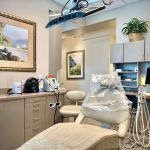 Desert Ridge Smiles - Radhika Rawal DDS5.0 (145 review)
Desert Ridge Smiles - Radhika Rawal DDS5.0 (145 review) Malinowski & Sefcik5.0 (8 review)
Malinowski & Sefcik5.0 (8 review) Pinnacle Dental Group - Plainfield, IL (Implant, Cosmetic, and General Dentistry)4.0 (264 review)
Pinnacle Dental Group - Plainfield, IL (Implant, Cosmetic, and General Dentistry)4.0 (264 review) Western Dental & Orthodontics3.0 (346 review)
Western Dental & Orthodontics3.0 (346 review) Reardon Dental4.0 (557 review)
Reardon Dental4.0 (557 review) The Importance of Oral Health Education During Pregnancy for a Healthy Pregnancy
The Importance of Oral Health Education During Pregnancy for a Healthy Pregnancy Best Tips for Brushing Your Teeth Properly for Healthy Gums: Essential Techniques for Oral Health
Best Tips for Brushing Your Teeth Properly for Healthy Gums: Essential Techniques for Oral Health Why Skipping Dental Checkups Can Lead to Bigger Oral Health Problems
Why Skipping Dental Checkups Can Lead to Bigger Oral Health Problems Advantages of Porcelain Dental Restorations
Advantages of Porcelain Dental Restorations How Can Diabetes Cause Tooth and Gum Problems? Preventing and Managing Oral Health Issues
How Can Diabetes Cause Tooth and Gum Problems? Preventing and Managing Oral Health Issues Healthy Habits for Promoting Good Oral Health and Hygiene: Tips for a Healthy Smile
Healthy Habits for Promoting Good Oral Health and Hygiene: Tips for a Healthy Smile